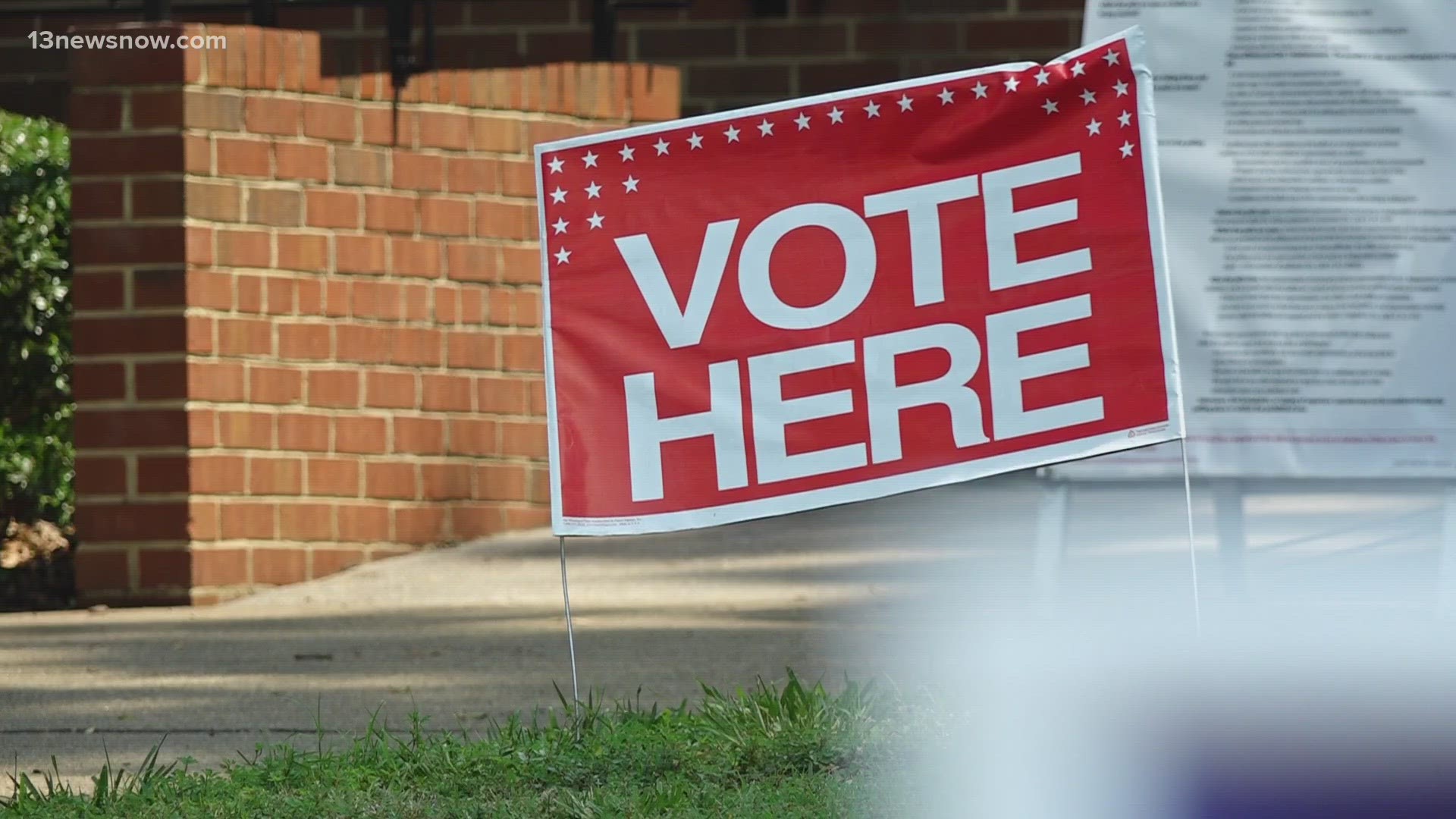NORFOLK, Va. — Ahead of Tuesday's June primary elections, 13News Now is walking you through the voting changes in Virginia that have altered the election day experience in the Commonwealth in recent years.
According to research from Northern Illinois University, in 2018 Virginia ranked as the 49th easiest state in the United States in which to vote, ahead of only Mississippi, according to their Cost of Voting Index.
"Absentee voting historically compared to others has been restrictive," Ben Melusky, Associate Professor of Political Science at Old Dominion University said.
A slew of voting bills passed the Virginia General Assembly between 2020 and 2022 that expanded voter access - policies that are largely still in place today.
According to record-keeping through the Virginia Department of Elections, more than 50 voting measures passed through the Democrat-controlled General Assembly in 2020 at the height of the COVID-19 pandemic. Roughly 18 passed in 2021, while just over a dozen passed in 2022.
“In terms of the fact we haven’t rolled them back, it makes us look more similar to those more progressive, blue states," Melusky said.
- HB 1 and SB 111 – eliminates all excuses previously required for a voter to be eligible to vote by absentee ballot.
- HB 207 – changes the “annual absentee list” into a permanent absentee list.
- HB 238 – changes the deadline for a voter to return an absentee ballot by mail or commercial delivery, as long as its postmarked and mailed by Election Day and received by noon on the third day after the election
- HB 108 – adds Election Day, the Tuesday immediately following the 1st Monday in November, as a legal holiday
- HB 201 – Implements same-day voter registrations for all elections after October 1, 2022
- SB 1157 – moves municipal elections from May until November
- HB 1968 – expands availability of in-person voting during early voting periods to Sundays
- HB 1890 (Voting Rights Act of Virginia) – This bill is modeled after the Federal Voting Rights Act of 1965. This bill requires local governing bodies to present any proposed changes to a “covered practice” in advance for public comment for a minimum of 30 days. It also prohibits voter discrimination practices and allows voters to take legal action in cases of alleged voter suppression.
SB 3 – requires the results of absentee ballots to be reported to the Department of Elections
HB 1140 – requires the registrar to provide notice of cancellation of voter registration
Melusky added that 2023 did not see sweeping voting reform and changes, based in part because of a split General Assembly as well as the decline of the COVID-19 global pandemic.

